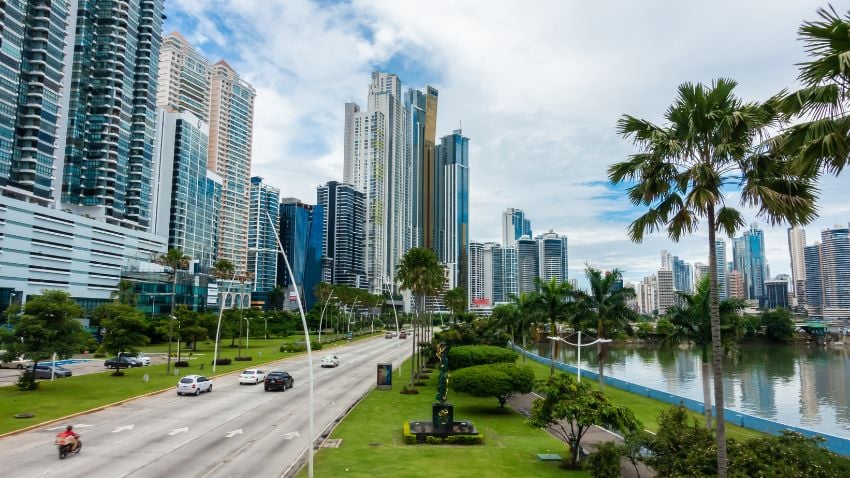How Safe Is Costa Rica?
Costa Rica has become one of the most popular expat and digital nomad destinations in Latin America, known for its natural beauty, relaxed lifestyle,...

4 min read
Bureaucracy is always a hassle, but as an expat, you must deal with it to secure your new life abroad. Governments often push questionable regulations to restrict freedoms, but also others to prevent dangerous criminal activities such as money laundering and the financing of terrorism.
One fundamental element of the fight against financial crime is the process of “Know Your Customer” (KYC). Financial institutions and companies need to verify the identity of customers and assess their potential risks to prevent these problems. This also relates to “Anti-Money Laundering” (AML), which refers to regulations and policies to prevent, detect and report illegal activities.
These two practices are major in modern systems, including the banking and financial industries.

Know Your Customer is essential to fight financial crimes
The financial, banking and insurance industries are heavily regulated for the average citizen, and only the privileged are allowed to skip the restrictive regulations. Big banks such as Deutsche Bank have faced suspicions of money laundering, which has harmed the company’s reputation.
A business that fails at its KYC process can lose the trust of the general public, as well as significant sums of money in fines or bribes to clean up its negative publicity. The best rule of thumb any business can follow is complying with the KYC regulations and avoiding legal trouble. Moreover, it allows them to identify potential risks, take adequate measures to reduce them and understand the customers’ requirements. Therefore, KYC can help a business operate without violating the Law, providing better products and services to customers and building customer trust and loyalty.
Let us take a look at how KYC works. In general, it entails the three following stages.
Related article: The Basics Of How To Get A Second Passport Or A Second Residency

KYC process increases the trust of the general public
Although necessary, KYC is complex and demands significant expertise and resources. In practice, many businesses outsource this process to third-party service providers specialized in KYC who employ advanced technology and data analytics to make sure the process is compliant, accurate and efficient.
KYC entails certain challenges. One of these is the high cost of implementing the process. As we already pointed out, there is a need for technology and data analytics, which implies the employment of qualified personnel. Big corporations do not have much trouble when investing in this process, but smaller and medium-sized ones do.
However, not only do companies deal with problems. Customers also might face plenty of frustration and friction. Just like any other paperwork, KYC can be lengthy and ask for much personal information that can make the customer feel very uncomfortable. Therefore, you can expect some dissatisfaction and frustration, and the business can get its reputation hurt just by complying with strict regulations.
Another important issue is data security. KYC requires businesses to collect sensitive data that cybercriminals can target. Therefore, it is vital to have solid data security measures to protect this data.
Having said that, here are some practices for KYC.
Related article: Top 7 Crypto Friendly Countries In The World

AML regulations are meant to protect the integrity of the financial systems
AML is the process of covering up the true source of illegally obtained funds, which the criminal makes look like they are from legitimate sources. This applies to financial institutions such as banks, currency dealers or exchanges, money transmitters, and in general, money services businesses. The end goal is to prevent money laundering, terrorism financing, and other illegal activities.
AML has existed for some time due to criminals profiting from corruption, drug or human trafficking, illegal tax evasion, market manipulation, etc. This concept is closely related to Combating the Financing of Terrorism (CFT). As the IMF points out, these criminal activities divert the resources away from economically and socially productive uses, which harms the financial sector and external stability of member states.
In short, AML’s regulations are meant not to support criminal activities and, instead, protect the integrity of the financial systems and prevent the misuse of financial institutions. Let us take a look at some of the key elements of AML. The measures ensure that financial institutions comply with regulations and prevent using their services to facilitate money laundering activities.
Some AML institutions are the US Financial Crimes Enforcement Network (FinCEN) and the international Financial Action Task Force (FATF).
AML is another challenging process due to the increasingly sophisticated method of money laundering. Plus, implementing these measures is costly because financial institutions must invest in training, technology and compliance teams to maintain these programs. Sadly, the customer often pays higher financial services fees due to this investment.
Related article: Top 9 Countries With Little Or No Taxes
.jpg?width=850&height=478&name=Some%20AML%20institutions%20are%20the%20%20international%20Financial%20Action%20Task%20Force%20(FATF).jpg)
Some AML institutions are the international Financial Action Task Force (FATF)
The rise of crime justifies the surge of KYC and AML. These processes are vital to stop and prevent criminal activities, but it entails dangers to customers because cybercriminals might target their data. Plus, customers often pay higher prices because companies must invest plenty of money in these programs, including training, personnel and technology to ensure compliance with regulations.
If you want the best intel from the expat world, including profitable offshore opportunities, little-known tax-saving strategies, and hard-won insights on immigration, passports, and Plan-B residencies, all delivered to your inbox every single week, then join our daily correspondence, EMS Pulse®. Currently enjoyed by over 84,000 expats and expat-hopefuls worldwide. Fill in the form below to join our newsletter free:

Written by Mikkel Thorup
Mikkel Thorup is the world’s most sought-after expat consultant. He focuses on helping high-net-worth private clients to legally mitigate tax liabilities, obtain a second residency and citizenship, and assemble a portfolio of foreign investments including international real estate, timber plantations, agricultural land and other hard-money tangible assets. Mikkel is the Founder and CEO at Expat Money®, a private consulting firm started in 2017. He hosts the popular weekly podcast, the Expat Money Show, and wrote the definitive #1-Best Selling book Expat Secrets - How To Pay Zero Taxes, Live Overseas And Make Giant Piles Of Money, and his second book: Expats Guide On Moving To Mexico.

Costa Rica has become one of the most popular expat and digital nomad destinations in Latin America, known for its natural beauty, relaxed lifestyle,...

Mexico remains one of Latin America’s most compelling destinations, especially for North Americans. More than a million expats call it home, and tens...

South Korea is far more than K-pop and K-dramas. It is a country known for outstanding food, from bustling street markets to high-end dining, as well...